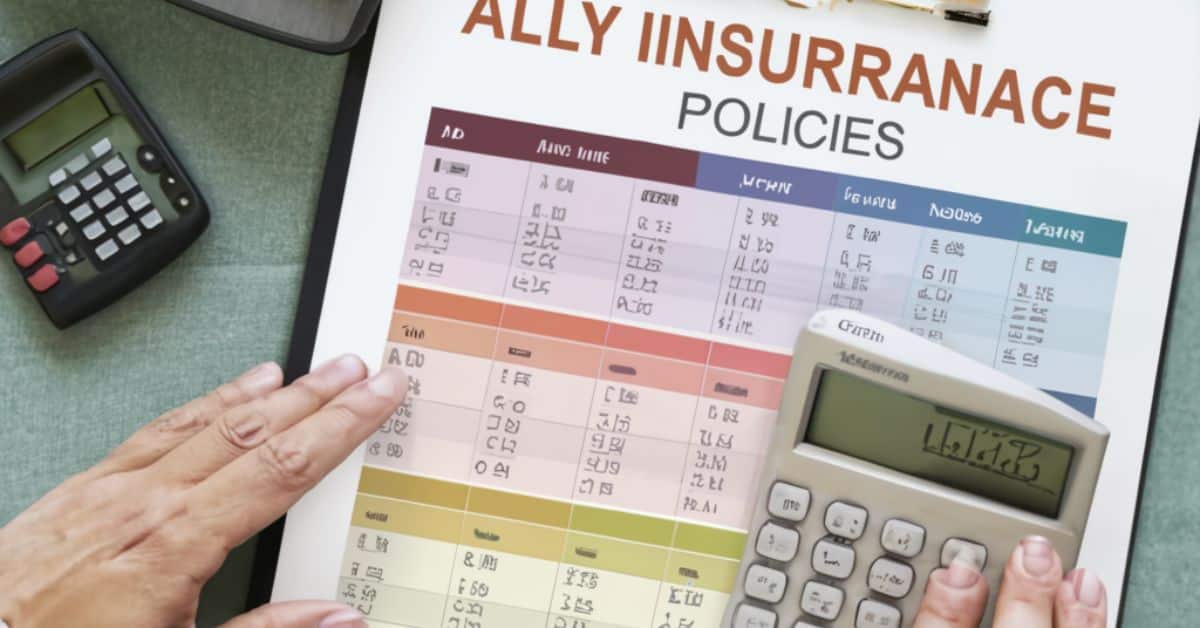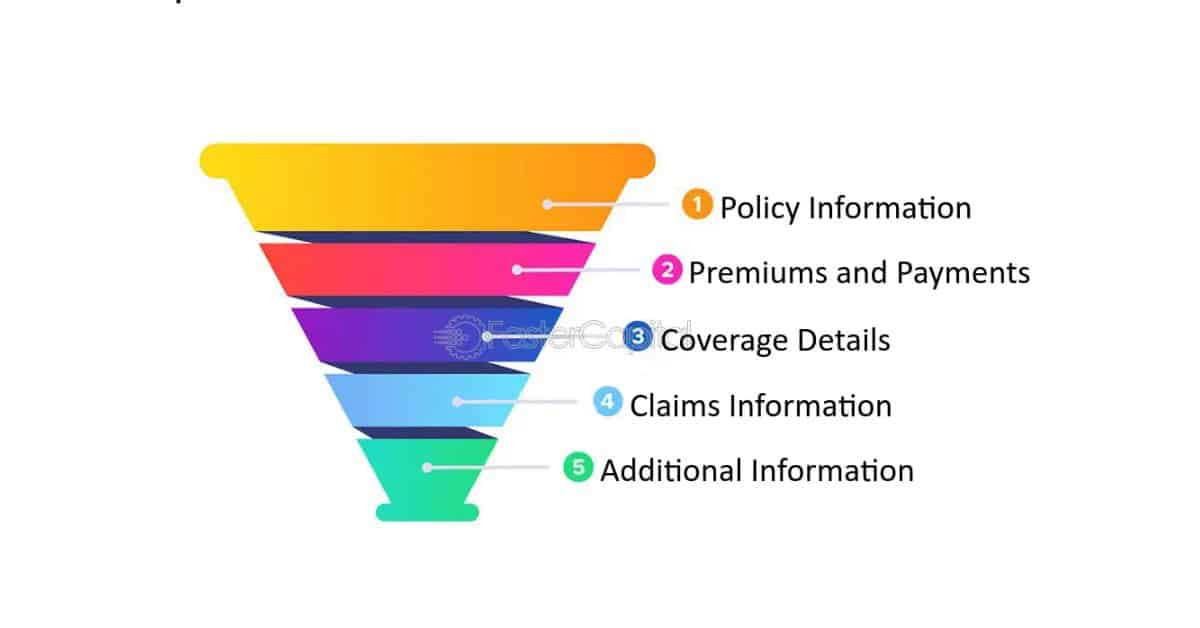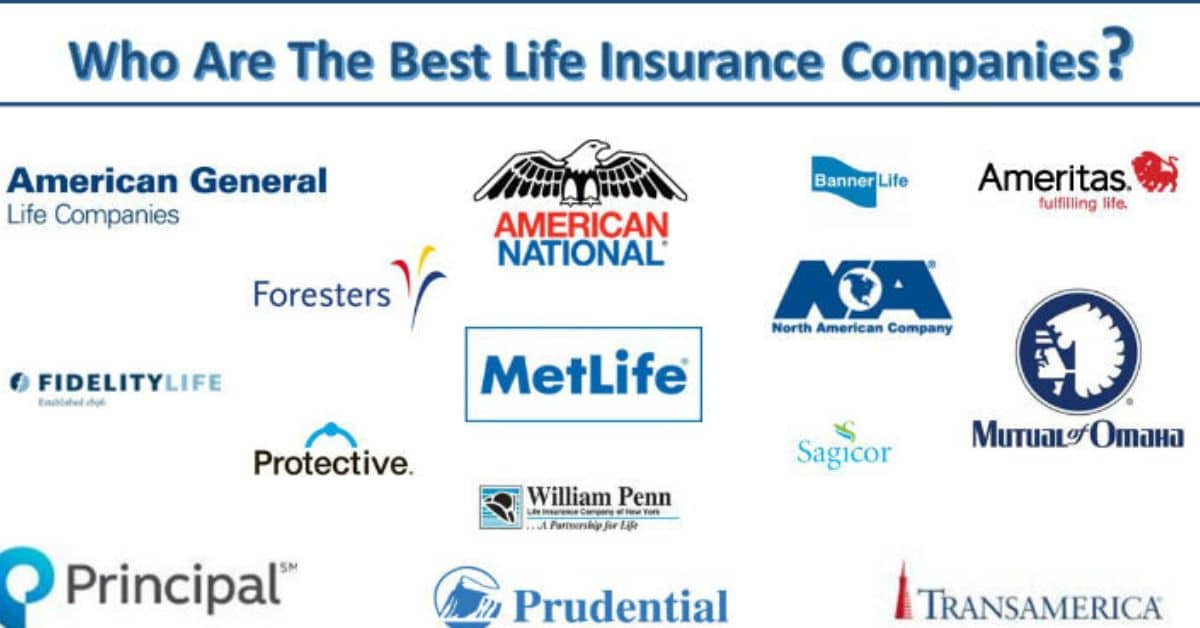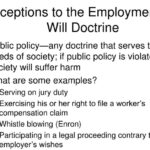Ally Life Insurance Financial offers various life insurance products, including term life, whole life, and universal life policies. Term life insurance provides coverage for a specific period, while whole life and universal life offer permanent coverage with investment features.
To apply for Ally life insurance, you need to meet eligibility criteria such as age, citizenship status, and passing a medical exam. The application process can be completed online or over the phone, requiring essential documents like ID, Social Security number, and medical history.
Costs of Ally life insurance depend on factors like policy type, coverage amount, age, health status, and gender. They offer competitive pricing and additional features like accelerated death benefits and optional riders for policy customization.
Types of Life Insurance Offered

Ally Financial provides term life insurance policies with coverage options ranging from 10 to 30 years, offering a death benefit to beneficiaries if the insured individual passes away during the chosen term. Here’s an overview of each type:
Term Life Insurance
Term life insurance is a type of coverage that lasts for a specific period, such as 10, 20, or 30 years, providing a death benefit if the insured individual passes away during that time. This insurance option is known for its affordability and straightforward coverage terms.
Ally Financial offers term life insurance policies where policyholders can choose the coverage amount and term length that best suits their needs. Premiums are fixed for the chosen term, making it easier to budget for insurance costs. Term life insurance is often chosen to cover temporary needs like mortgages or income protection for dependents.
Whole Life Insurance
Whole life insurance provides lifelong coverage as long as premiums are paid, offering both a death benefit and a cash value component that grows over time. This type of insurance offers stability and a means to build savings over the policy’s duration.
With Ally Financial, whole life insurance policies come with fixed premiums and a guaranteed death benefit. The cash value of the policy accumulates tax-deferred, providing a source of funds that can be accessed through loans or withdrawals. While whole life insurance typically has higher premiums compared to term life, it offers permanent coverage and financial benefits that can be utilized during the insured’s lifetime.
Choosing the Right Policy
When deciding between term life insurance and whole life insurance, it is essential to consider your financial goals and coverage needs. Term life insurance is suitable for temporary needs and budget-conscious individuals, offering affordable premiums and straightforward coverage for a specific period.
On the other hand, whole life insurance provides permanent coverage and a cash value component, making it ideal for long term financial planning and building savings over time. Ally Financial offers both options, allowing policyholders to select the policy type that aligns with their budget and financial objectives. Consulting with an insurance agent can help determine the most suitable policy and coverage amount for your situation.
Applying for Ally Life Insurance

Applying for Ally Life Insurance is a straightforward process that can be done online or over the phone, requiring applicants to meet eligibility criteria such as age, citizenship, address, and a medical exam, and providing various documents like photo ID and medical history. Here’s what you need to know about eligibility and the application process:
Eligibility Requirements
- Applicants must be aged between 18-75.
- They need to be either a U.S. citizen or a permanent legal resident.
- A valid U.S. address is required.
- Passing a medical exam is mandatory.
- A clean driving record is also necessary.
- Certain medical conditions or risky hobbies might affect eligibility or lead to higher premiums.
How to Apply
There are two ways to apply for Ally life insurance:
Online Application:
- Visit Ally’s website and click “Apply Now.”
- Fill out the online application form with personal and medical details.
- The process typically takes 10-15 minutes.
- You’ll need information like your Social Security number and employment verification.
- Submit the application electronically for review.
Phone Application:
- Call Ally’s toll free number to speak with a licensed agent.
- They will guide you through the application questions.
- This option provides personalized assistance.
- The application process over the phone may take 30-45 minutes.
- Have your documents ready, such as photo ID and medical history authorization.
Required Documentation
For Ally life insurance, prepare these documents:
- Photo ID like a driver’s license
- Social Security number
- Proof of employment and income
- Medical history authorization form
- Paramedical exam results
- Motor vehicle records
- Accurate information expedites the underwriting process
- Expect a decision within 7-10 days after submitting all required documents.
Also Read; aeonscope Insights: Navigating the World of Business Intelligence
Costs of Ally Life Insurance

The cost of Ally Life Insurance varies based on factors like the type of policy, coverage amount, age, gender, and health status.
For term life insurance, a healthy 30-year-old male might pay around $20 per month for a $250,000 policy, while a 50-year-old could pay around $60 for the same coverage. Premiums are higher for females.
Permanent life insurance policies like Whole Life or Universal Life have higher monthly premiums due to lifelong coverage, ranging from $100-150 per month for a 30-year-old male with $250,000 coverage. Premiums increase with age.
Additionally, health conditions like high blood pressure or diabetes can raise insurance premiums, while serious illnesses may result in denial of coverage. It’s recommended to use Ally’s online quote tool to estimate personalized pricing.
Features and Riders
Ally Life Insurance offers additional features and optional riders to enhance coverage. These include an accelerated death benefit, accidental death benefit rider, children’s term rider, waiver of premium rider, accelerated benefit rider, additional insured rider, and more.
Accelerated Death Benefits
Accelerated death benefits are a feature of life insurance policies that allow policyholders to access a portion of their death benefit if diagnosed with a terminal illness. This benefit can help cover medical expenses or other financial needs during a challenging time.
The amount available under accelerated death benefits varies by policy and may be subject to certain conditions and limitations. It is important to review your policy documents and speak with your insurance provider to understand the specifics of this feature.
Optional Riders
Optional riders are additional features that can be added to a life insurance policy for an extra cost, offering more customization and flexibility to meet specific needs. Here are some common optional riders:
- Accidental Death Benefit Rider provides extra coverage if the insured dies due to a covered accident.
- Children’s Term Rider adds coverage for children, which can later be converted to permanent life insurance.
- Waiver of Premium Rider waives premium payments if the insured becomes disabled and meets certain conditions.
- Accelerated Benefit Rider allows access to the death benefit if diagnosed with specific critical, chronic, or terminal illnesses.
- Additional Insured Rider adds term life coverage for another person, like a spouse or child.
- Long-Term Care Rider offers benefits to help cover long-term care expenses if needed.
Coverage Details

Coverage Details encompass essential aspects of a life insurance policy. Here’s a breakdown:
Effective Coverage Dates
- Coverage begins after application approval, medical underwriting, and specified effective date confirmation.
- Coverage ceases upon policy cancellation, missed premium payments, or death of the insured.
- Term life policies end after the specified term unless converted to permanent insurance.
Exclusions
- Typically exclude death by suicide within a specific period after policy issuance.
- War, criminal acts, or hazardous activities may also be excluded.
- Contestability periods allow insurers to contest claims within the initial policy term if inaccurate information was provided.
Filing a Claim
- Beneficiaries must notify the insurer promptly after the insured’s death.
- Required documents include a death certificate and completed claim forms.
- Insurers may request additional medical records and statements.
- Claims are typically processed within 30-60 days after approval.
Customer Service
Ally’s customer service includes a 24/7 phone line, online account management, and licensed agents for policy servicing.
Phone Support: Ally offers a dedicated 24/7 helpline at 1-800-555-1212 for instant assistance with policy queries, changes, and troubleshooting.
Online Account Management: Customers can conveniently manage payments, policy details, claims, and updates by registering on Ally’s website.
Policy Servicing: Licensed agents are available to aid in ongoing support, including policy modifications, claims processing, and coverage reviews.
Focus on Excellence: Ally prioritizes exceptional customer service, aiming to simplify policy management and assist customers with any aspect of their life insurance policies.
Ratings and Reviews
Ally Life Insurance has received strong ratings from independent agencies like AM Best, earning an A+ (Superior) rating for financial strength. This rating reflects the company’s ability to pay out claims reliably.
Customer reviews on platforms like TrustPilot generally highlight positive experiences with Ally Life Insurance. Many customers praise the easy application process, affordable policies, and helpful customer service.
However, some reviews mention delays in processing claims and occasional challenges in reaching customer service. Overall, Ally’s ratings and reviews indicate a solid reputation in the life insurance industry.
Alternatives to Considers
State Farm: With a long-standing reputation in the insurance industry, State Farm offers a range of life insurance policies, including term, whole, and universal life options. They are known for their competitive rates and flexible underwriting, making it easier for individuals with certain health conditions to get approved.
Banner Life: Specializing in term life insurance, Banner Life stands out for its affordable rates. Their online application process is straightforward, although they may not offer as many additional policy features as some other providers. Banner Life is a great choice for those prioritizing cost-effective coverage.
Prudential: A top choice for whole and universal life insurance, Prudential offers personalized service and various living benefits. While their premiums may be higher than some term life rates, their strong financial ratings and added benefits make them a reputable option for comprehensive coverage.
Haven Life: Known for its fully online application process and algorithm-based underwriting, Haven Life provides quick decisions for term life insurance. They specialize in simplicity and convenience, making them ideal for those seeking a straightforward and hassle-free experience.
Other Options: Apart from the mentioned alternatives, there are numerous other insurance providers to consider. It’s essential to compare policies, rates, underwriting requirements, and customer reviews to find the best fit for your specific needs and preferences.
best life insurance companies

Here are some top life insurance companies based on different factors:
Best Overall: Northwestern Mutual – Known for financial strength, customer satisfaction, and a variety of policy options.
Best for Customer Satisfaction: State Farm – Offers excellent customer service and a wide range of insurance products.
Best for Seniors: Mutual of Omaha – Provides affordable coverage options for older individuals.
Best for Affordability: Amica – Offers competitive rates and discounts for policyholders.
Best for Term Life Insurance: Guardian – Known for customizable term life insurance policies with flexible options.
Best for Whole Life Insurance: MassMutual – Offers comprehensive whole life insurance coverage with strong financial stability.
Best for Universal Life Insurance: Pacific Life – Known for flexible universal life insurance policies and competitive rates.
Ladder life insurance
Ladder Life Insurance is an online life insurance company that offers term life insurance policies to individuals. Founded in 2015 and headquartered in Palo Alto, California, Ladder aims to simplify the life insurance process by providing instant coverage and easy online management.
They offer policies with coverage amounts ranging from $100,000 to $8 million, allowing customers to tailor their coverage based on their needs. Ladder is known for its competitive rates, no-commission structure, and user-friendly digital platform that allows customers to adjust their coverage or cancel their policies at any time without fees.
Also Read: fintechzoom rolex submariner
What is a rider in life insurance?
A rider in life insurance is an additional provision or feature that can be added to a base life insurance policy. These riders offer extra benefits beyond the standard coverage provided by the policy. Riders can be used to customize a life insurance policy to better suit the policyholder’s needs and preferences. Examples of riders include:
Accelerated Death Benefit Rider: Allows the policyholder to receive a portion of the death benefit if they are diagnosed with a terminal illness, helping cover medical expenses or other financial needs.
Waiver of Premium Rider: Waives premium payments if the policyholder becomes disabled and meets certain conditions, ensuring the policy remains in force.
Guaranteed Insurability Rider: Allows the policyholder to purchase additional coverage at specified intervals without undergoing medical underwriting, ideal for increasing coverage as life circumstances change.
Critical Illness Rider: Provides a lump-sum payment if the policyholder is diagnosed with a covered critical illness, such as cancer or heart attack, helping cover medical costs and other expenses.
Child Term Rider: Adds coverage for children under the policy, providing financial protection in case of a child’s untimely death.
These riders can enhance the flexibility and value of a life insurance policy by addressing specific needs or potential risks faced by the policyholder and their family.
Frequently asked question
What is the payout of a life insurance policy?
The payout of a life insurance policy, known as the death benefit, is the amount paid to the beneficiary upon the death of the insured individual. This payout is typically tax-free and can be used by the beneficiary for various purposes such as covering funeral expenses, paying off debts, or providing financial support.
What is covered under life insurance policy?
Life insurance policies typically cover the insured person’s life. In the event of the insured’s death, the policy pays out a death benefit to the beneficiary. This benefit can be used to cover expenses such as medical bills, funeral costs, outstanding debts, and providing financial support to dependents.
What is the payout of a life insurance policy?
The payout of a life insurance policy, also known as the death benefit, is the amount of money paid to the designated beneficiary upon the death of the insured individual. This payment is typically tax-free and can be used for various financial needs.
What is laddering in life insurance?
Laddering in life insurance refers to a strategy where multiple life insurance policies are purchased with different coverage periods or amounts. This approach allows for more flexibility in coverage and premiums over time, ensuring that insurance needs are met at various life stages.
What is a commercial life insurance policy?
A commercial life insurance policy is designed to protect businesses and organizations against financial losses due to the death of key employees or executives. The policy provides a death benefit to the company, which can help cover expenses related to finding a suitable replacement or compensating for lost revenue.
How long has ladder insurance been around?
Ladder Life Insurance was founded in 2015 and launched in 2017. It is a relatively new player in the life insurance industry, offering digital and user-friendly insurance products aimed at simplifying the application and management processes for customers.
Which is the first brand of life insurance?
The first brand of life insurance in India was the Oriental Life Insurance Company, established in 1818. This marked the beginning of life insurance services on Indian soil, paving the way for the growth and development of the insurance sector in the country.
Conclusion
Ally Life Insurance, part of Ally Financial, offers term, whole, and universal life policies. Their application process is straightforward, requiring eligibility criteria like age and citizenship, and their costs vary based on factors like policy type and health status.
They focus on providing reliable customer service through phone support, online account management, and licensed agents for policy servicing. Alternatives to Ally include well known insurers like State Farm, Prudential, and Banner Life, each offering unique policy options and underwriting processes.
State Farm stands out for flexible underwriting, Banner Life for affordable rates, and Prudential for added benefits. Haven Life, with its online application and quick decisions, is another viable alternative. Comparing these options can help find the best fit based on individual needs and preferences.







